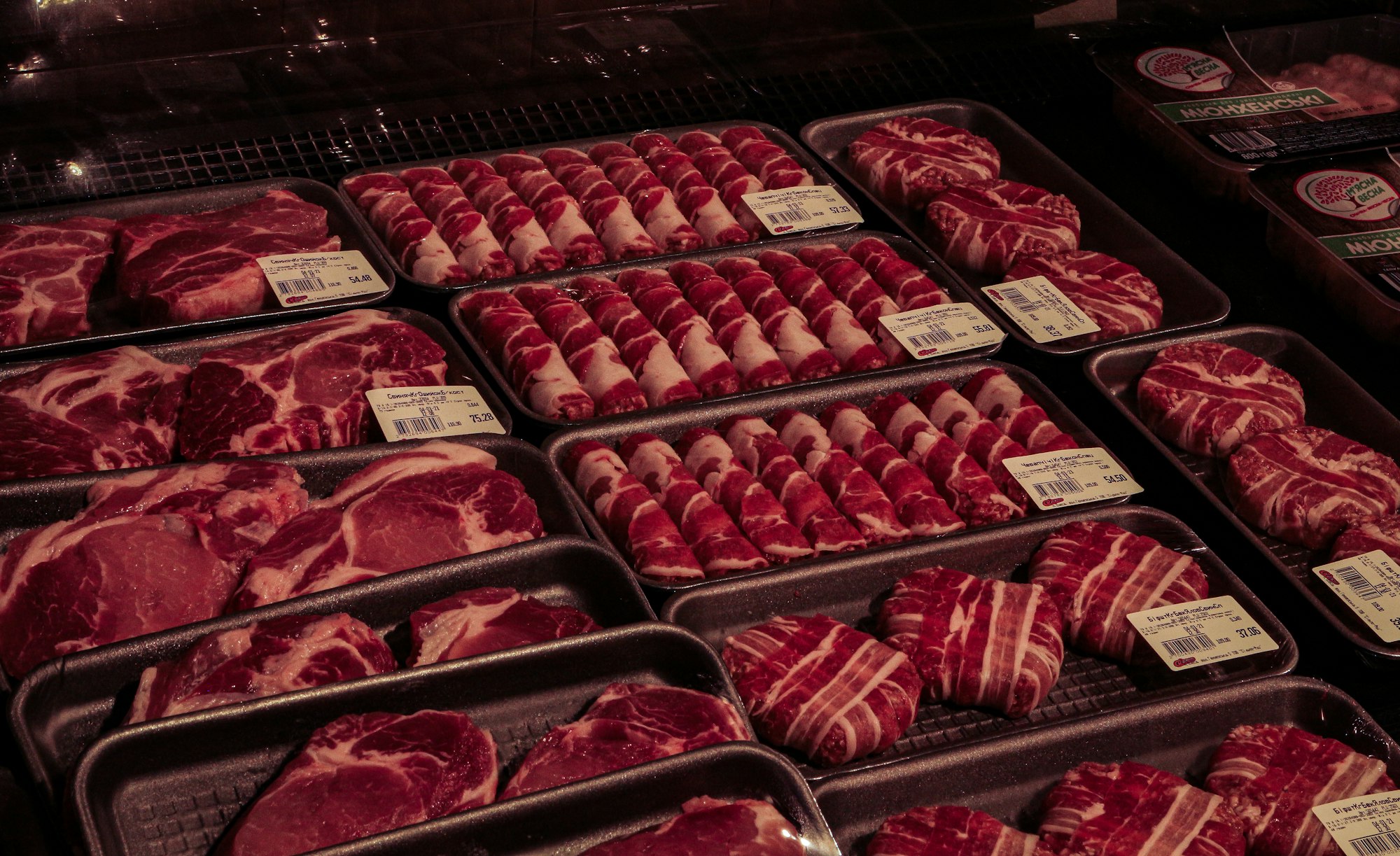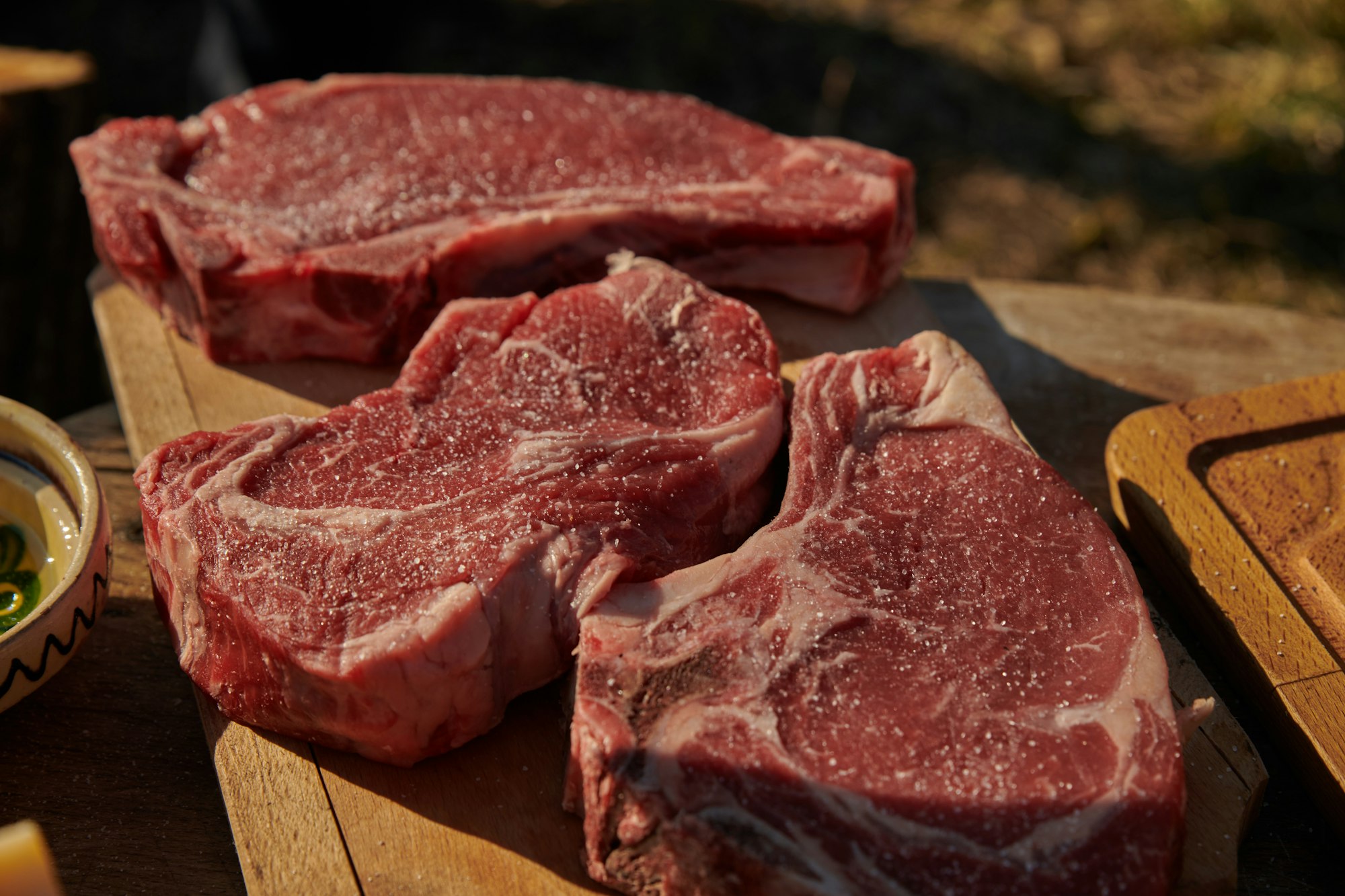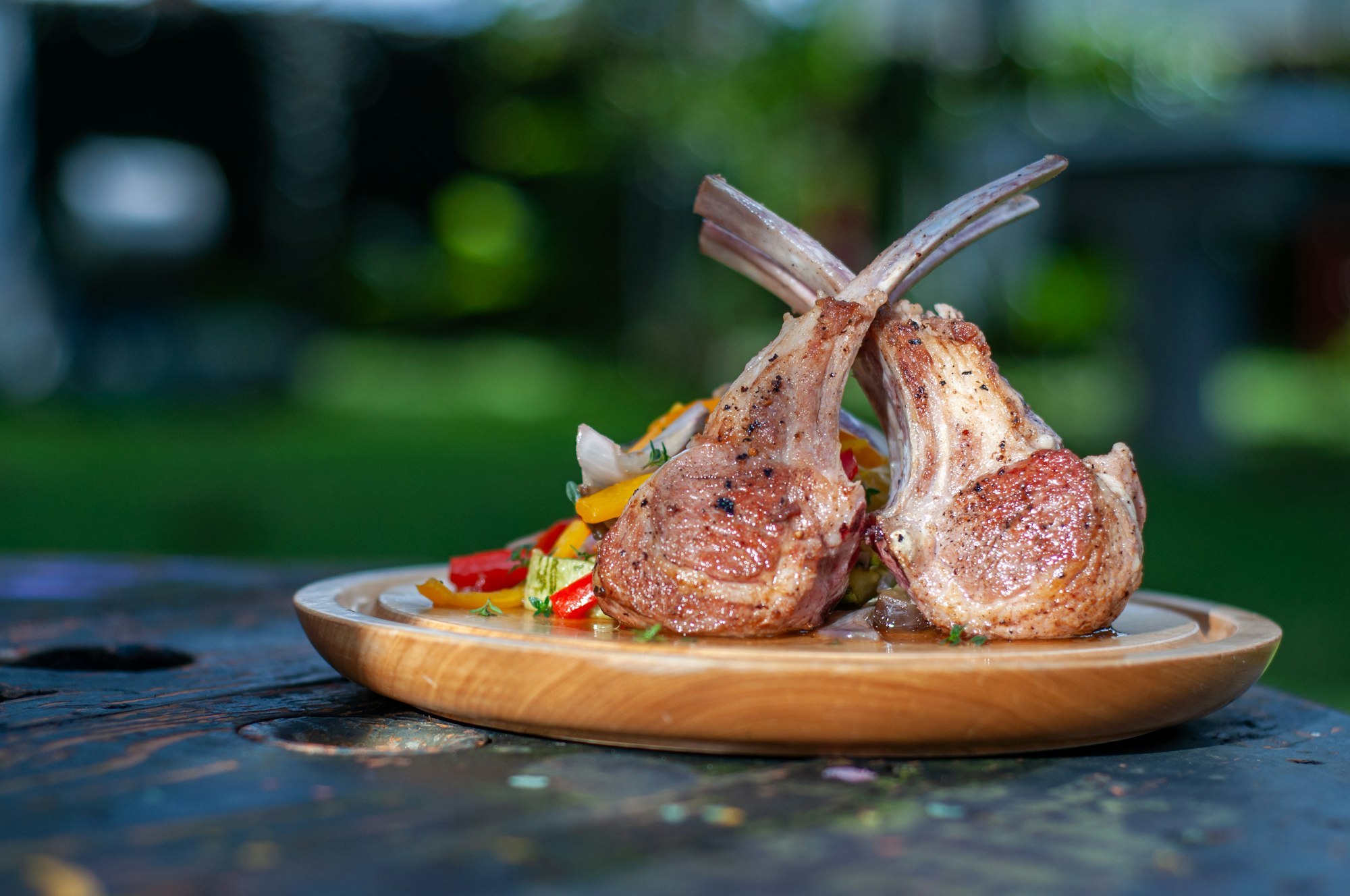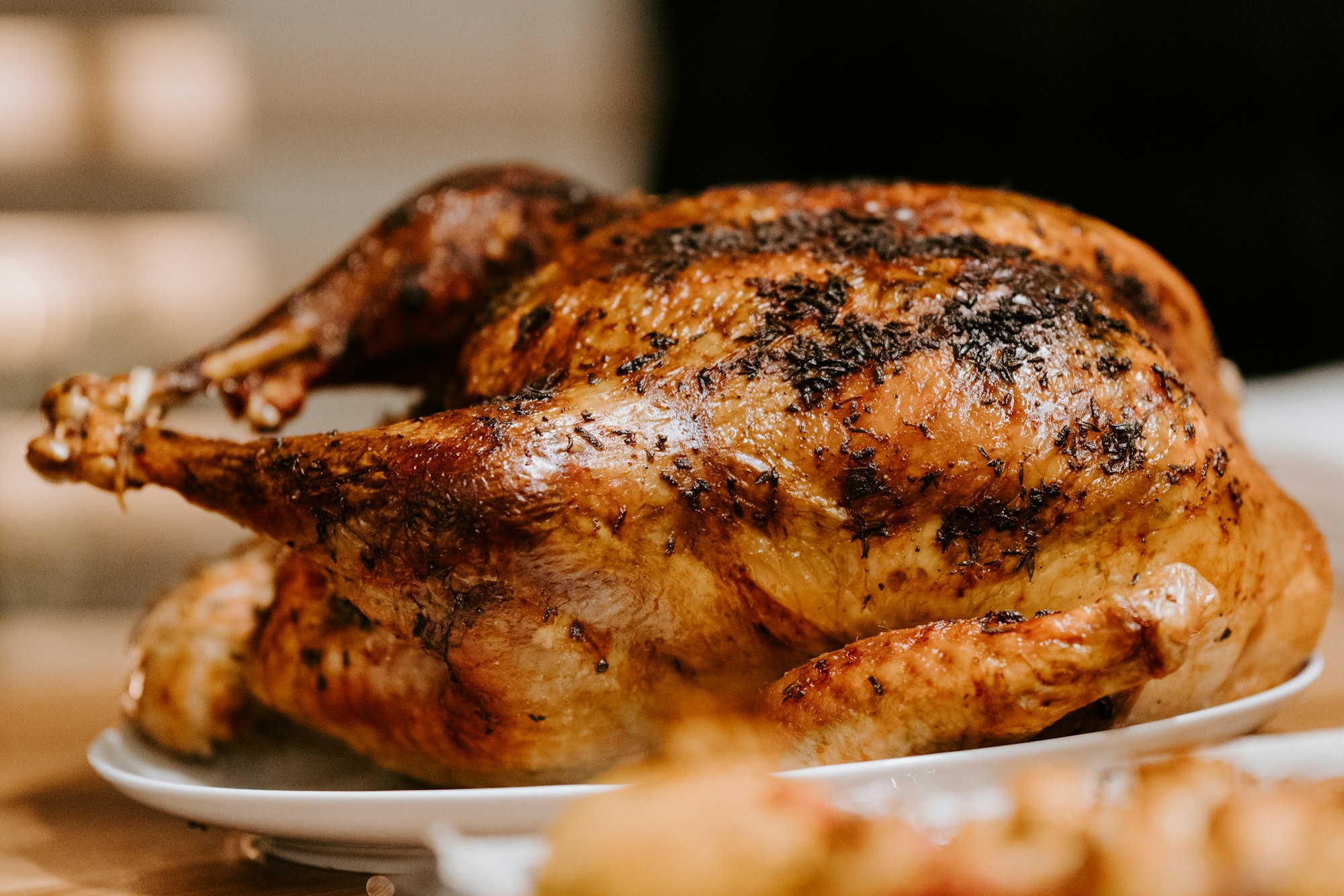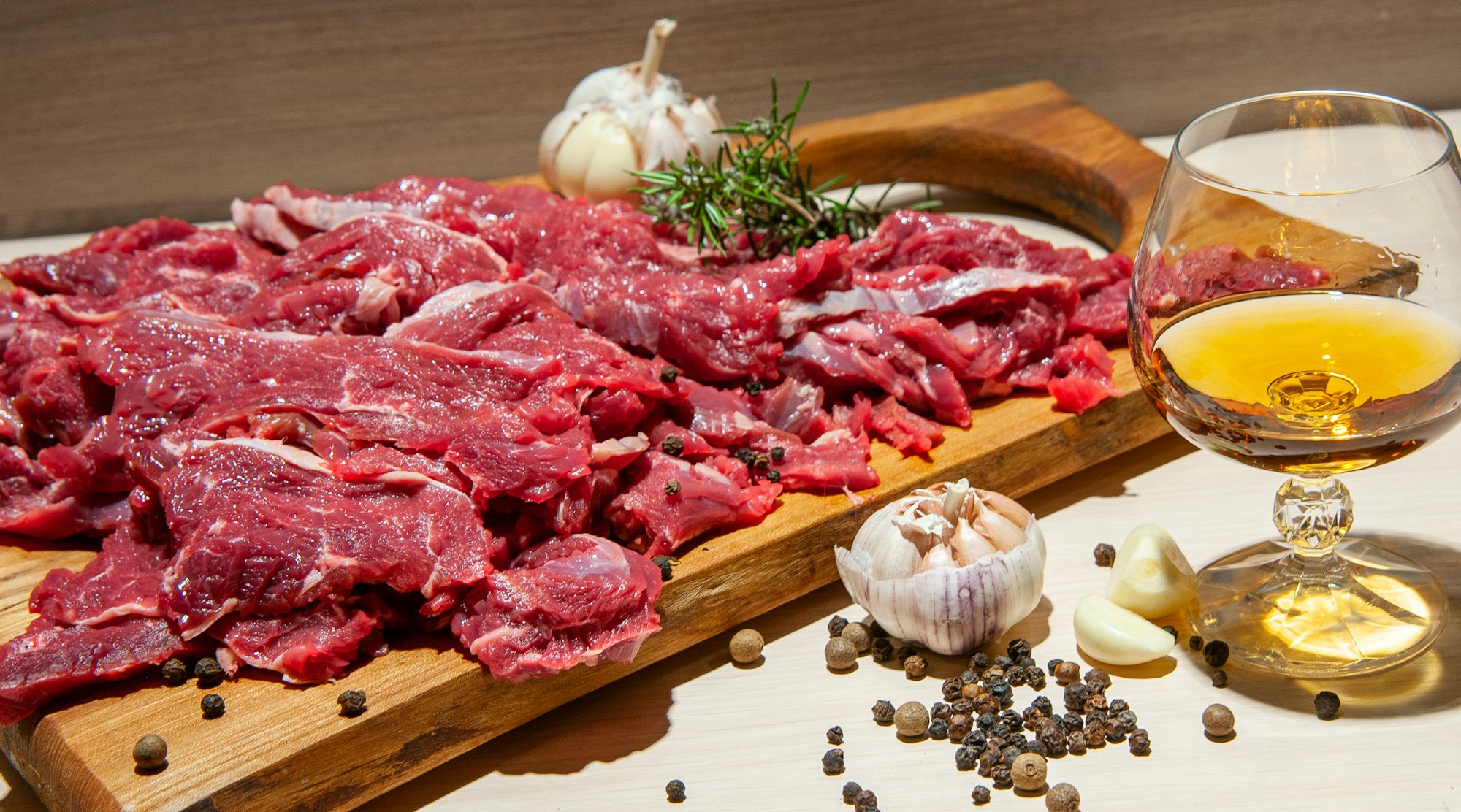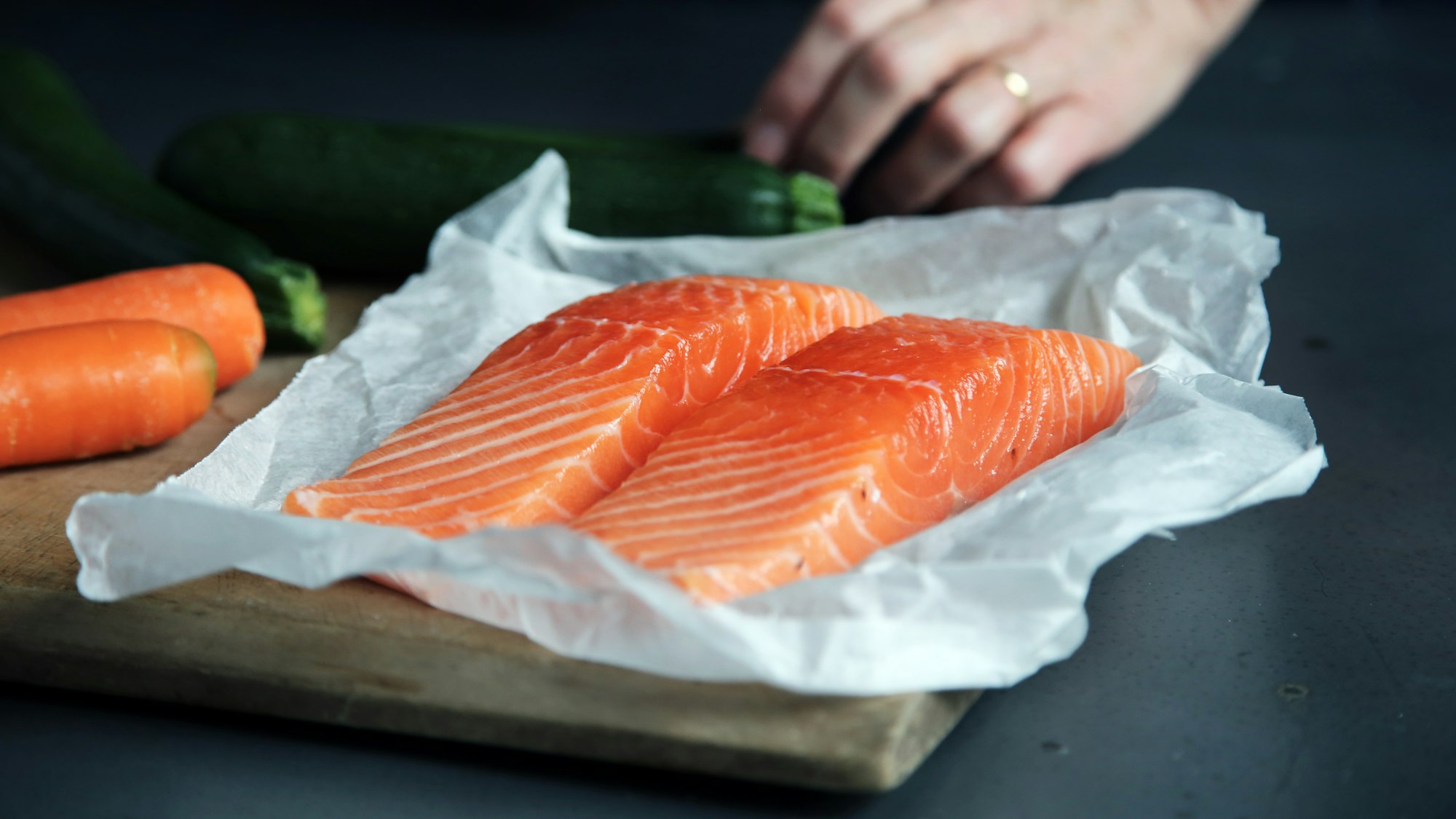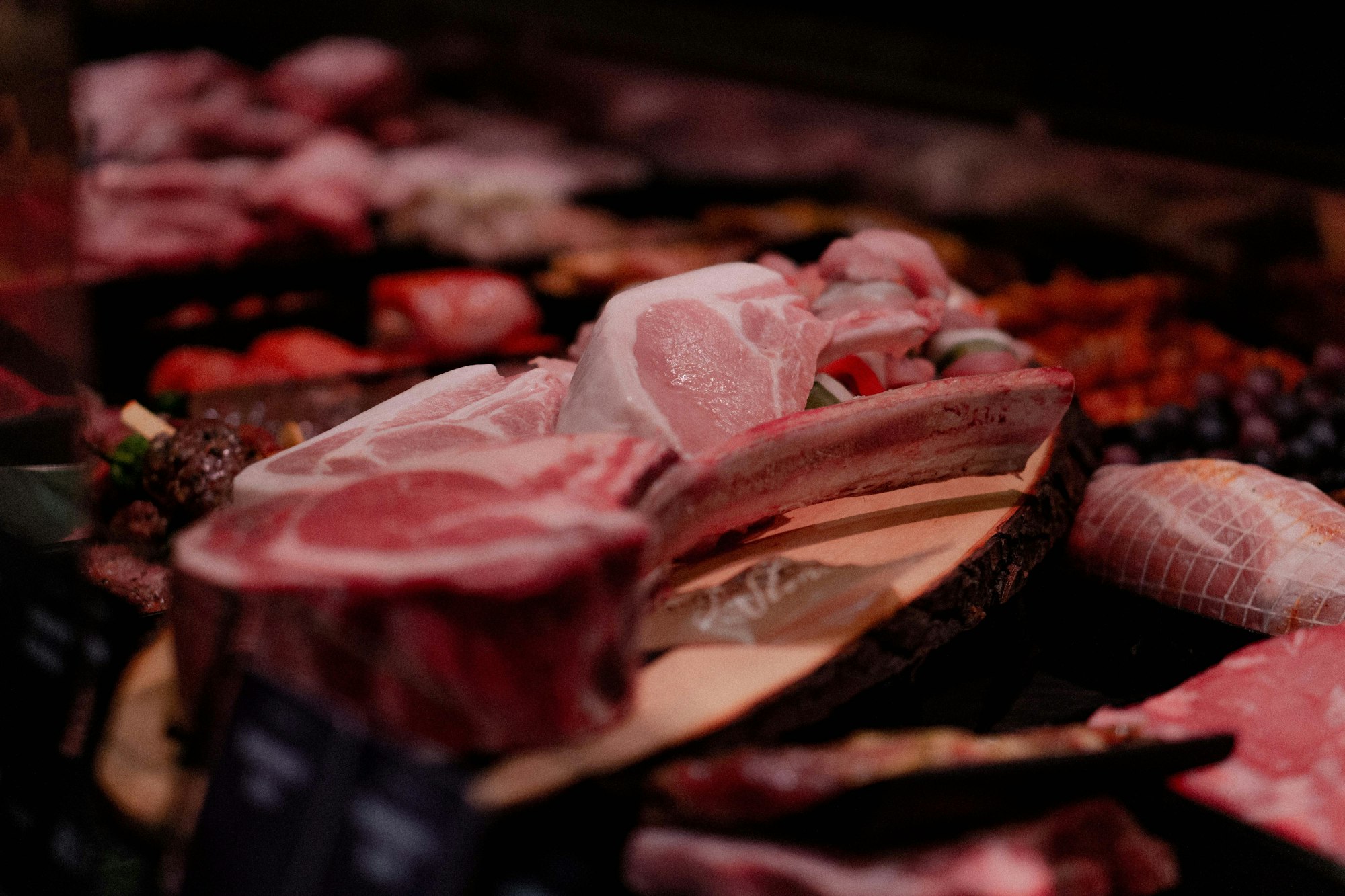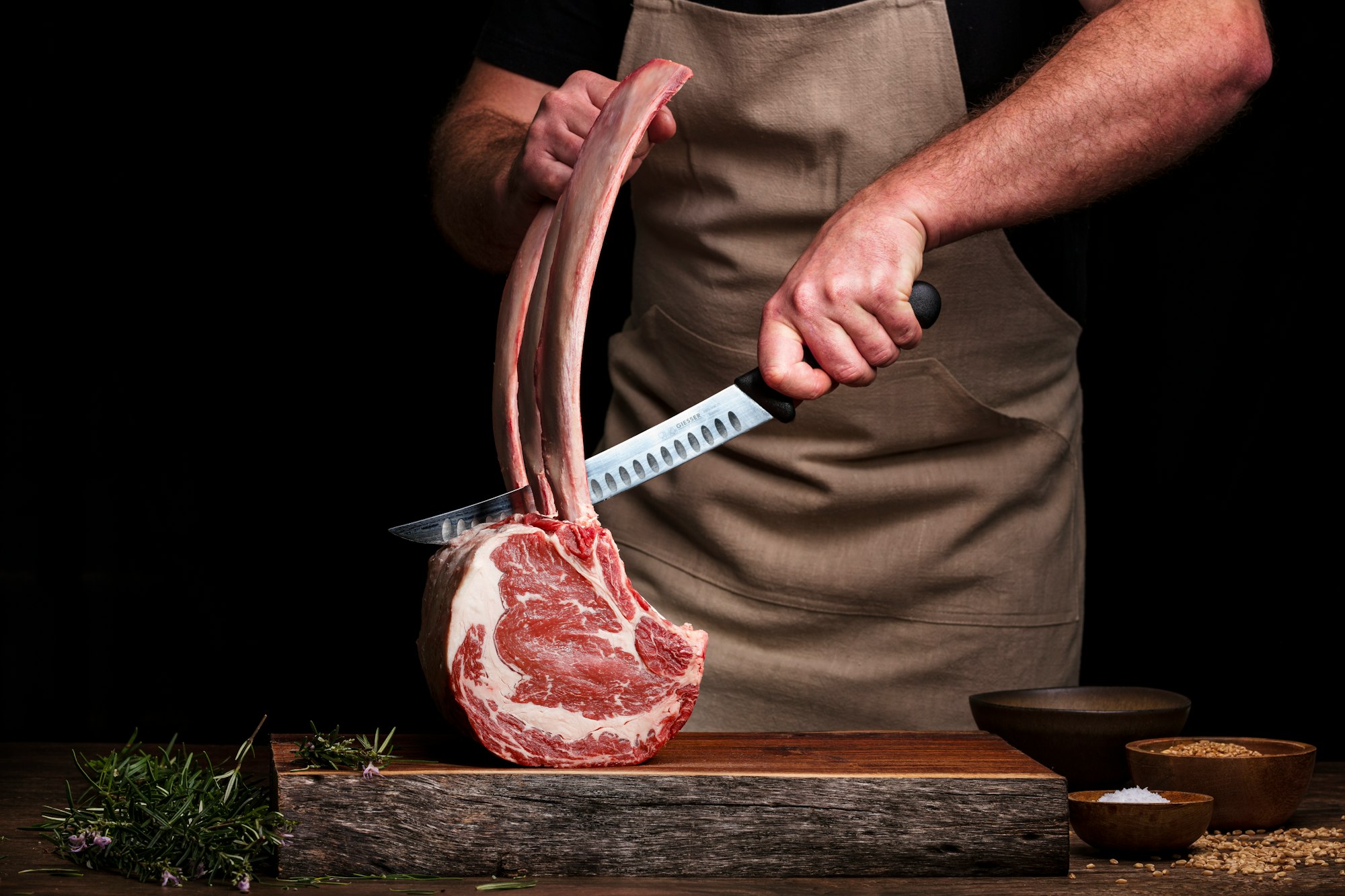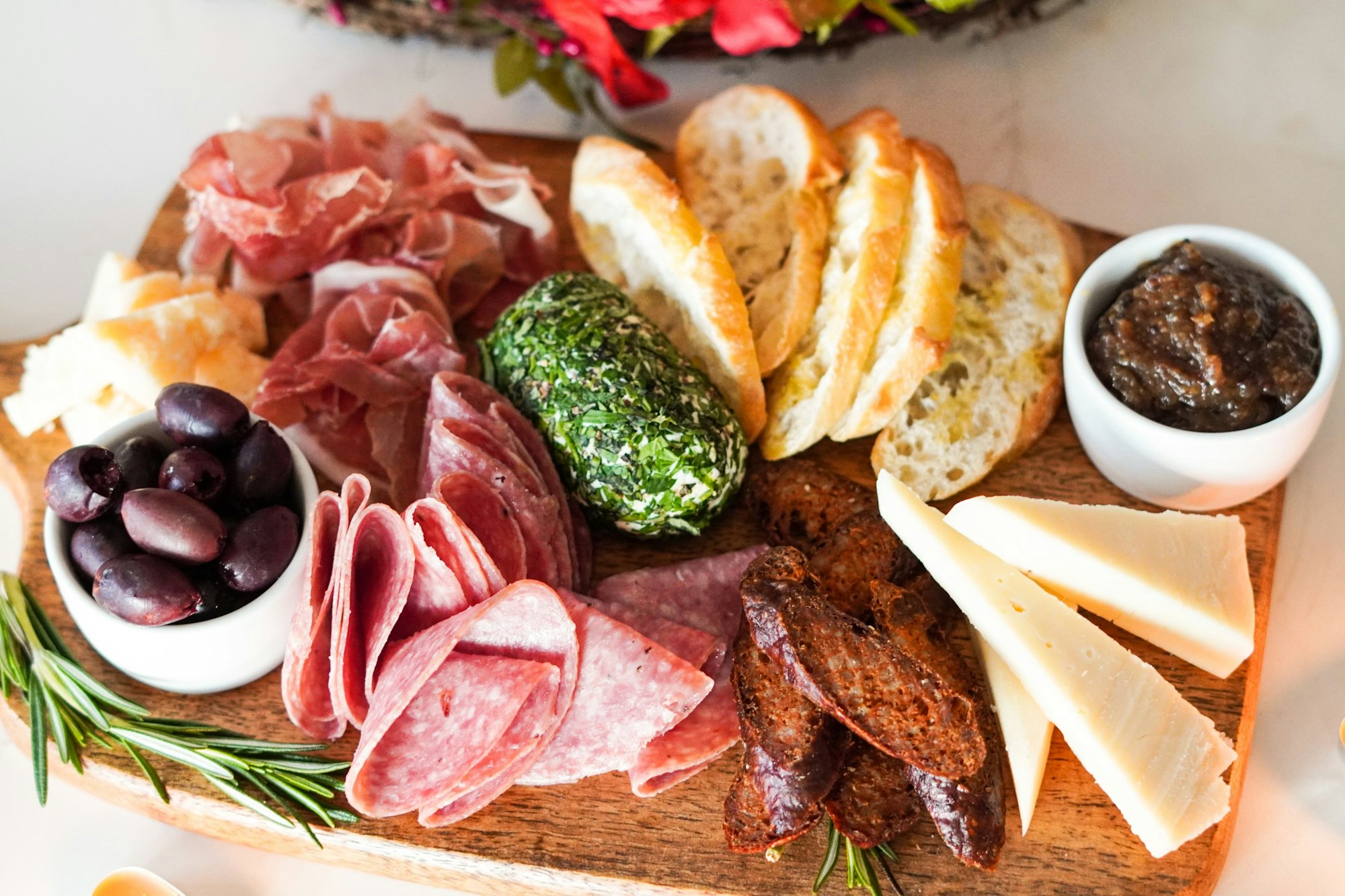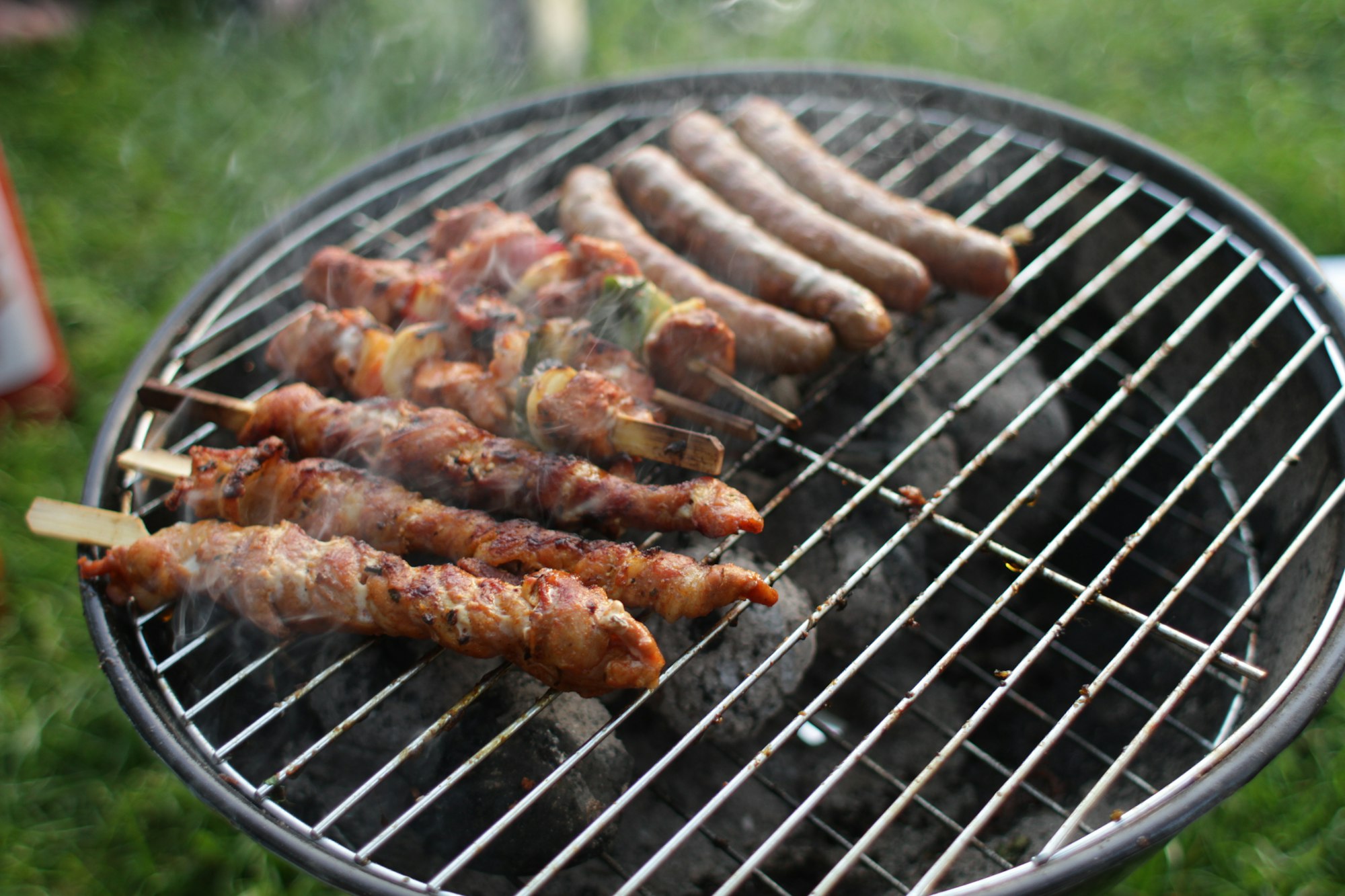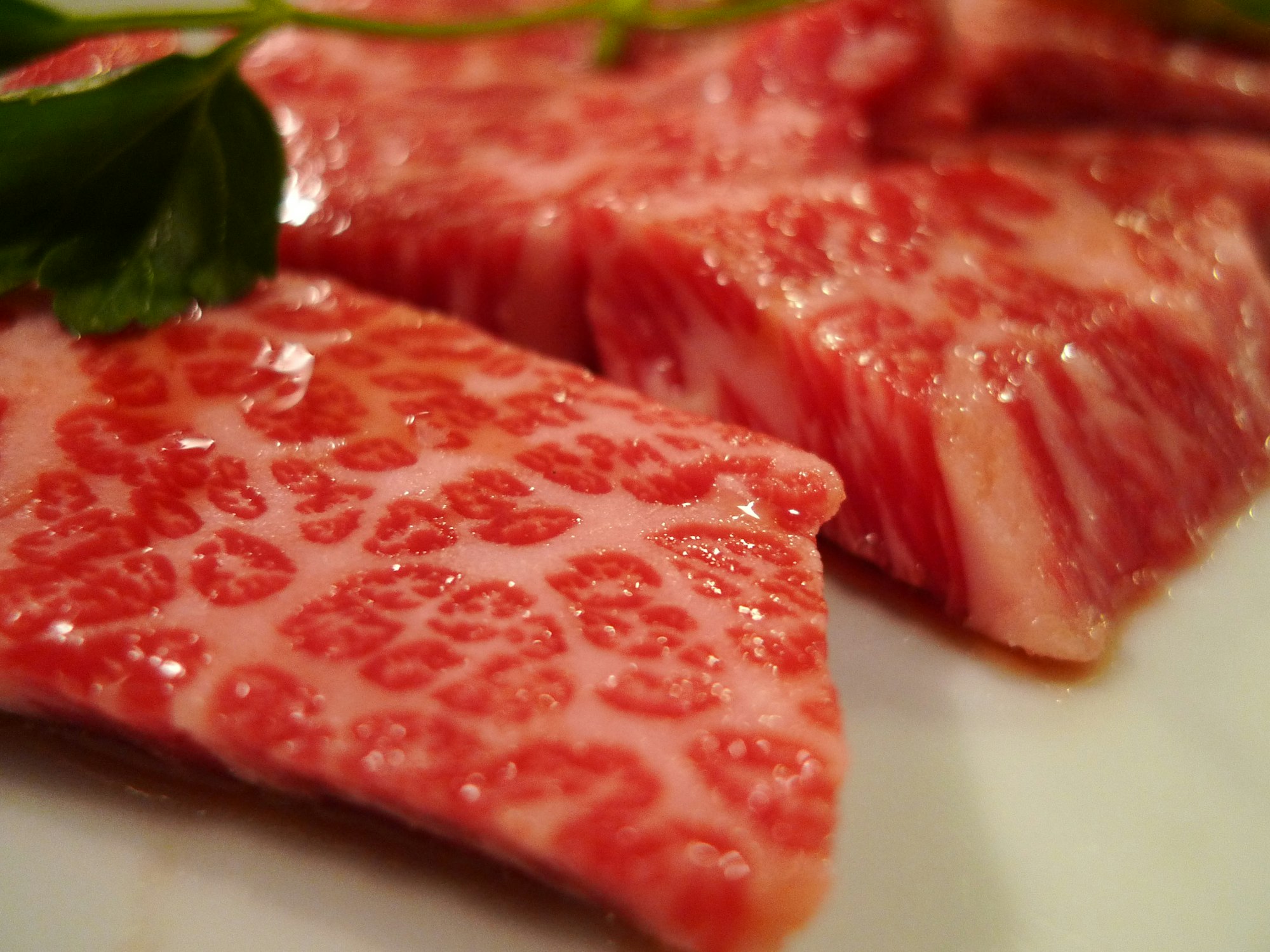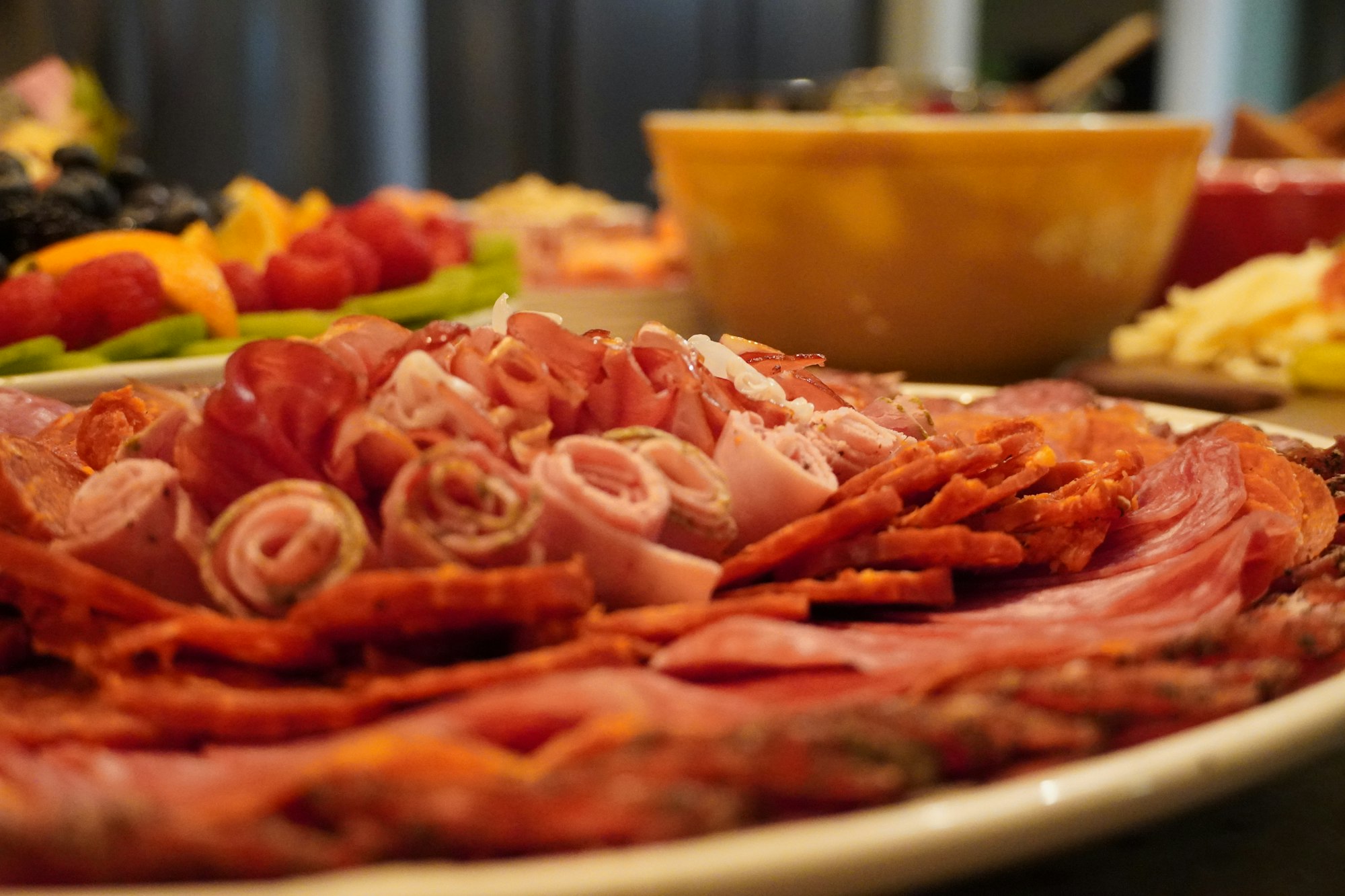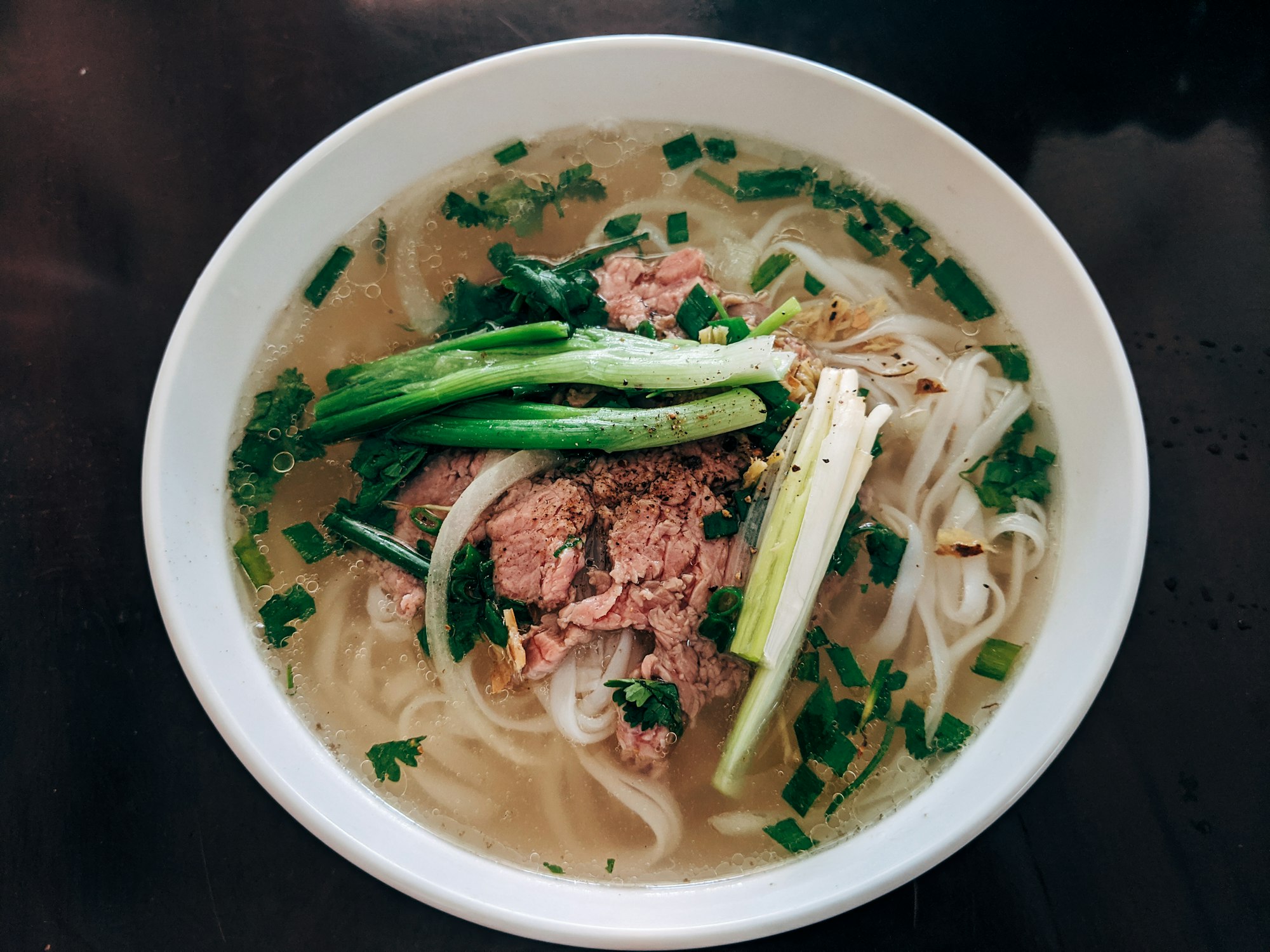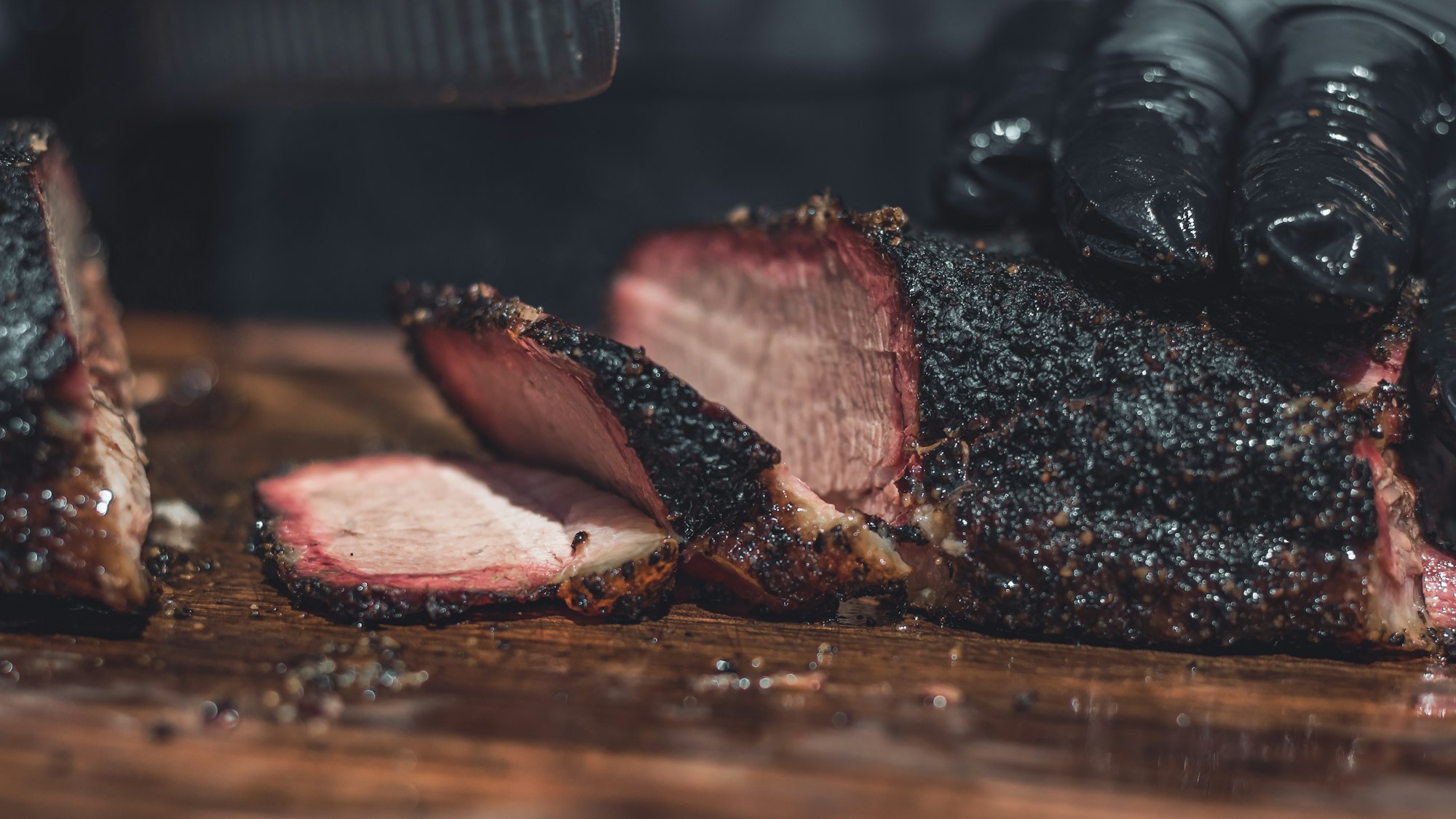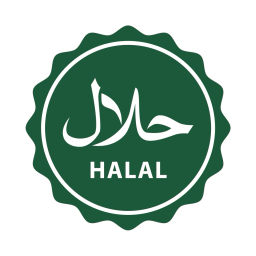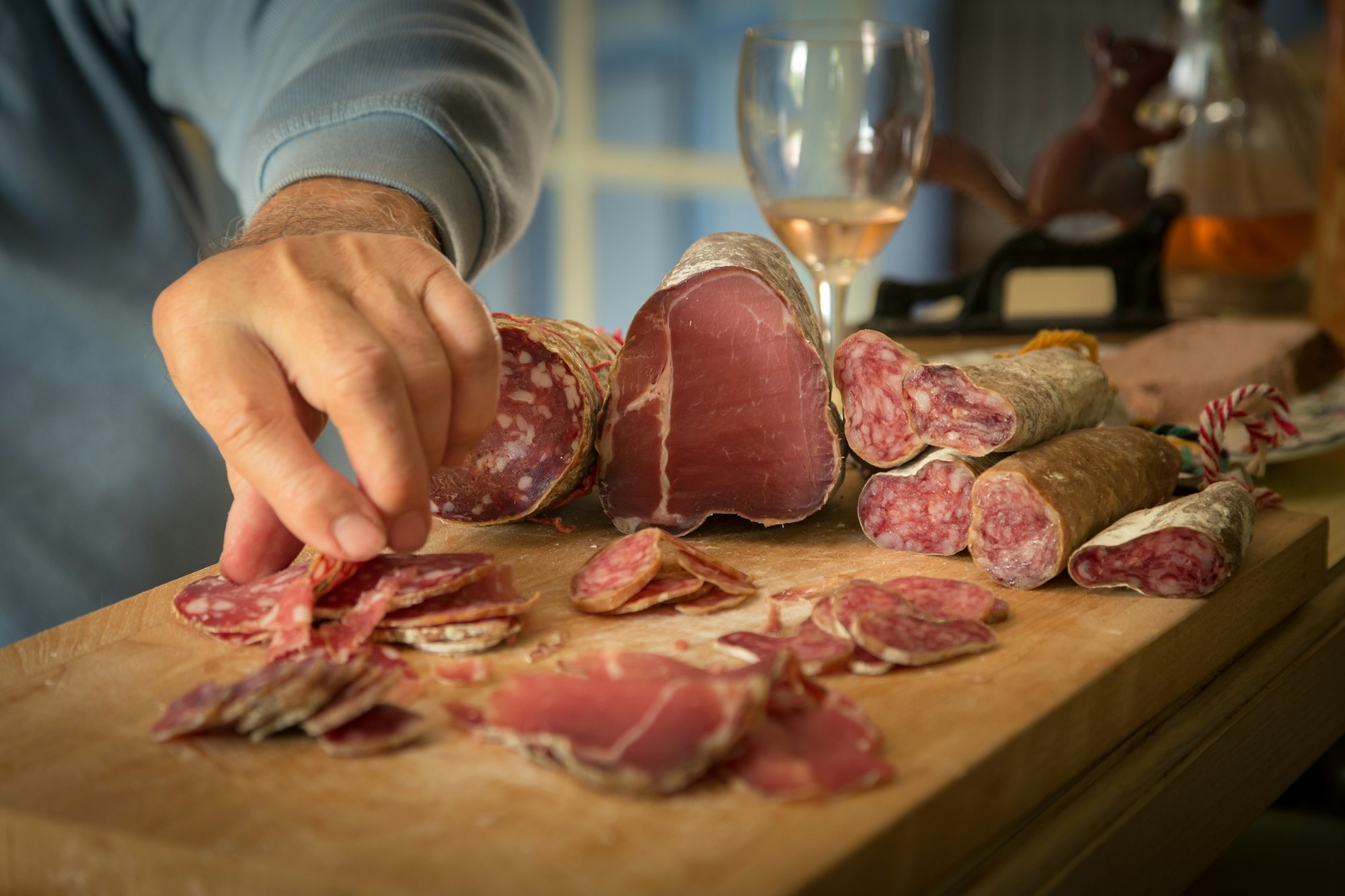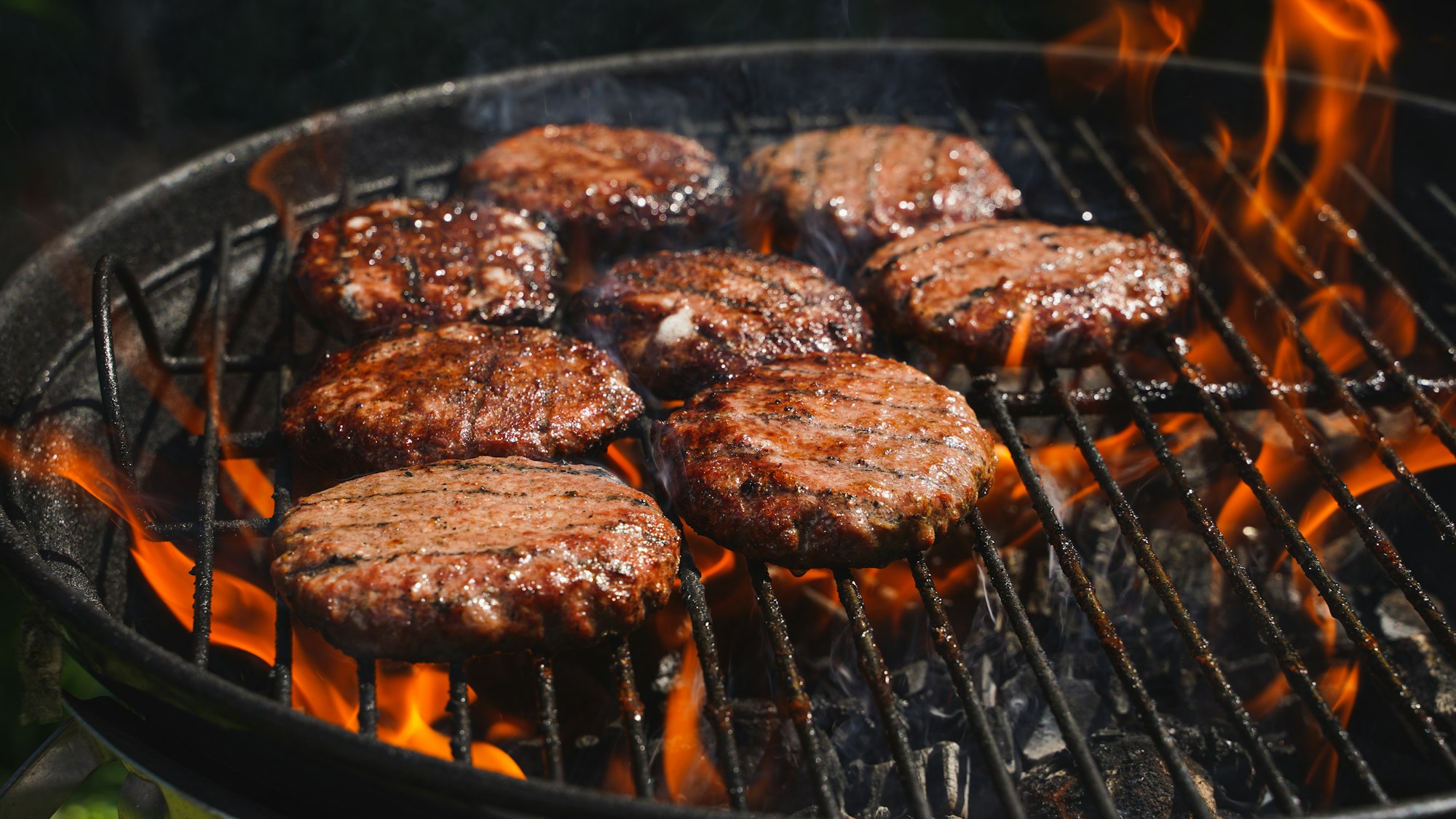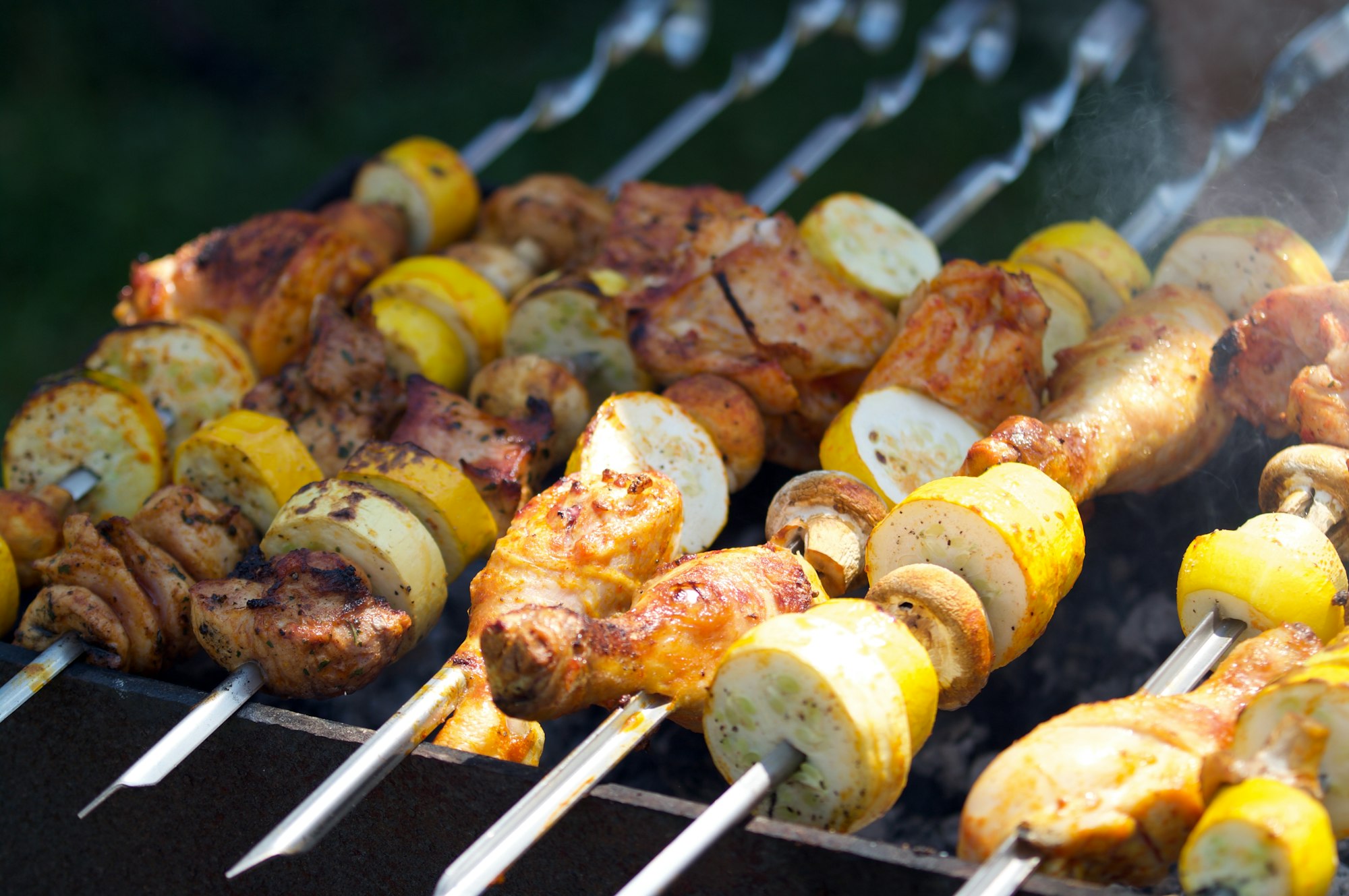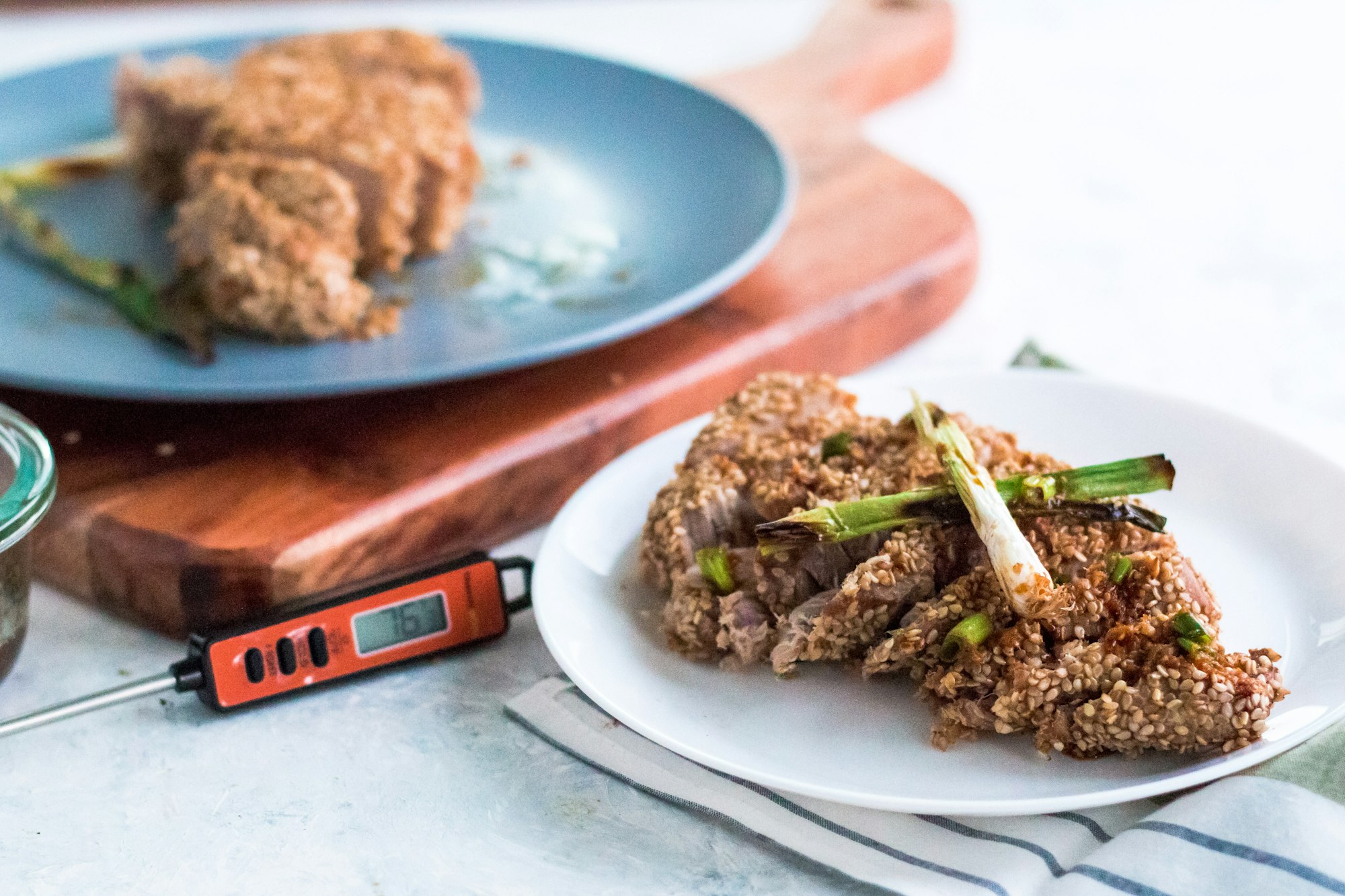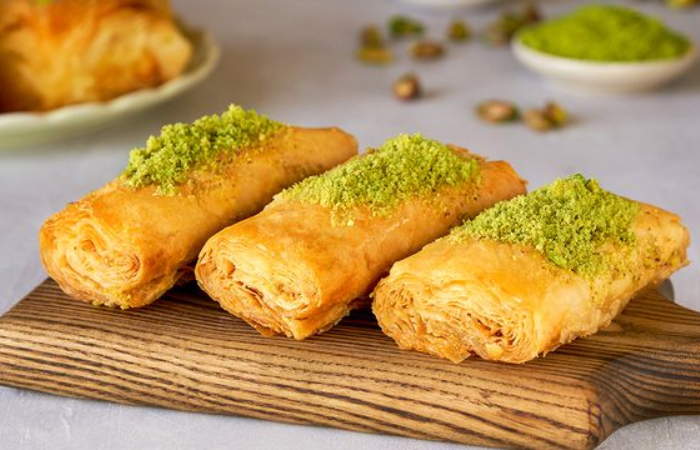Types of Halal Meat
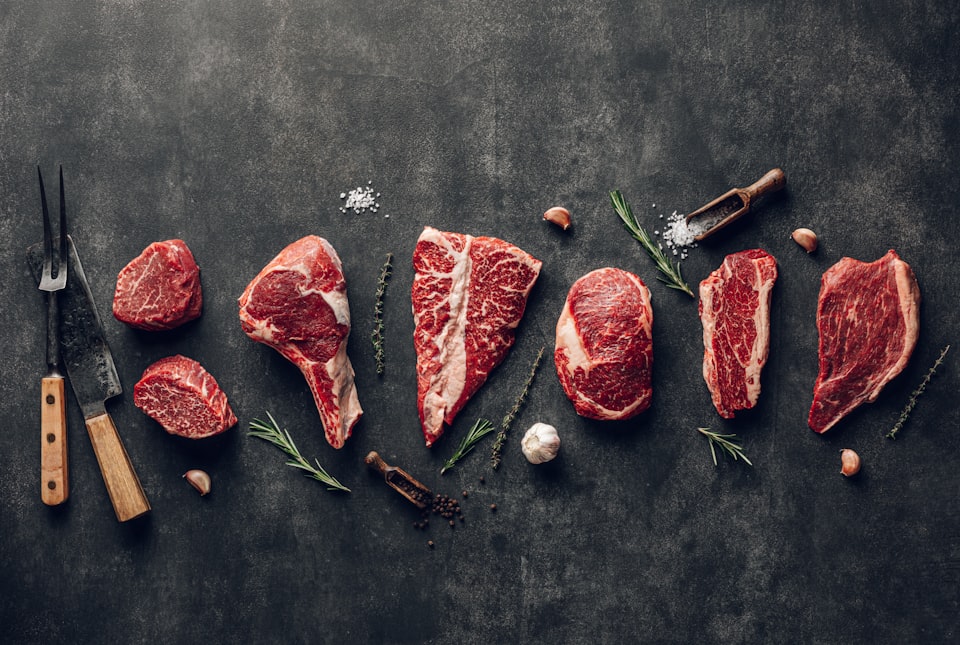
"Halal" is an Arabic term that signifies "permissible." When it comes to eating, it relates to what is permissible under Islamic law. Actually, observant Muslims are only permitted to consume this type of meat. This Islamic organization places a strong priority on halal meat certification, and prohibited goods are referred to as haram.
To be certified halal, meat must be slaughtered in a specific manner and cannot be an animal or banned cut, such as pork. Many Muslims find it convenient to shop at a nearby halal market, where every item is labelled halal.
Introduction
Halal meat is produced and slaughtered in accordance with Islamic regulations. To be classified as halal, GMO-free halal meat must be acquired from animals slaughtered in a certain manner. This entails cutting the jugular vein, carotid artery, and windpipe to ensure the animal's quick and painless death. Furthermore, hormone-free halal meat is devoid of alcohol, and the animals should have been fed a vegetarian diet free of growth hormones and antibiotics.
The Concept of Halal in Islam
Halal, which means "lawful or permitted," is a dietary rule that comes from Islamic traditions. Conversely, meals that do not meet the halal standard are regarded as haram, or "not permitted." It's critical to accommodate a wide range of people and their dietary needs because there are several culturally varied locations in the world, and more are likely to emerge in the future. You can accommodate the demands of a diverse population and ensure that others do not feel excluded by being aware of special dietary needs.
Halal is more than merely following certain dietary guidelines. It also checks how animals are treated, particularly in regard to their slaughtering practices. Since the animal is being offered to God, halal meat must be prepared with the least amount of suffering to the animal and in the name of God, as the animal is being sacrificed for him.
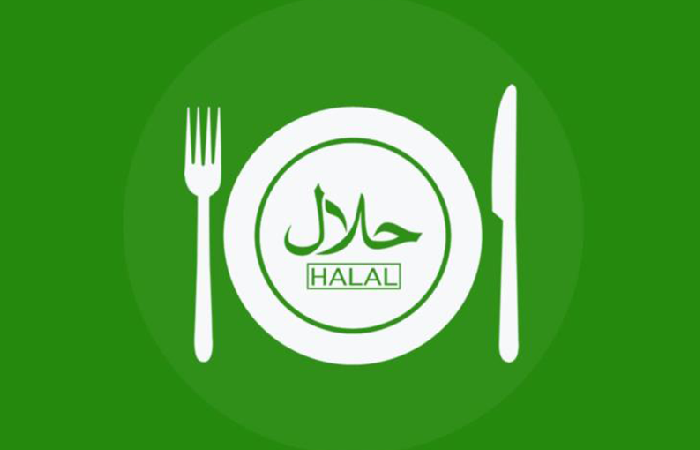
Individualistic viewpoints on religious customs and culture should be taken into account in addition to adding more dietary-specific foods to your menu. One way to do this would be to talk to the Muslims in your community about what they would want to see added to your menu and the best ways to prepare halal cuisine.
Having halal cooking skills is beneficial even if you don't own a restaurant or other eating establishment. Planning food, snacks, and beverages that are suitable for Muslims is crucial, especially if you intend to serve Muslims at a small, friendly get-together or neighborhood block party.
Importance of Halal Meat in Muslim Dietary Practices
Due to its strong religious and ethical roots, halal meat is extremely important in Muslim dietary practices. It includes a set of rules regulating how meat-based products are prepared, killed, and consumed in order to uphold Islamic beliefs and advance animal welfare.
- Religious Importance
Halal meat is highly valued in Islamic dietary laws, which aim to guide Muslims towards a spiritually fulfilling and nutritious lifestyle. The Quran, the sacred book of Islam, provides precise instructions on which foods are halal and haram (forbidden). According to these guidelines, eating halal meat fulfils a person's religious requirement to keep both their own and God's obligations.
- Advantages for Health
Techniques for preparing halal meat, such as drawing blood from the killed animal, may enhance health results. Since blood can contain pathogenic bacteria and contaminants, it is thought that eliminating them can improve hygiene and lower the chance of contracting a foodborne illness.
- Moral Aspects to Take into Account
Halal meat values go beyond religious mandates and include moral considerations for the well-being of animals. The killing technique, called dhabiha or zabiha, entails making a clean cut across the throat of the animal to cause the least amount of agony. This practice is thought to be in line with Islamic values of love and mercy, reflecting compassion and respect for the animal's life.
- Global Market for Halal Products
The expanding number of Muslims and their increasing demand for wholesome, ethically produced food are driving up the global market for halal beef. Halal certification agencies are vital to maintaining consumer confidence and ensuring the authenticity of halal products.
- Cultural Importance
Significant cultural value is attached to halal meat in many communities where Muslims predominate. It is a mainstay of traditional cuisine, appearing in a variety of meals and festivals. Deep cultural traditions and meanings are frequently associated with the preparation and consumption of halal meat.
The Overview and Objectives of Types of Halal Meat
Meat that is prepared in compliance with Islamic dietary regulations is referred to as halal meat. These laws cover particular procedures for butchering, preparing, and ingesting meat. They are taken from the Holy Quran, the sacred book of Islam. Muslims generally agree to be able to eat halal meat but not haram (forbidden) meat.
Halal Meat Types
Many types of meat are acceptable for eating as halal, such as:
Beef: A staple meat in many cultures, there are a plethora of methods to prepare beef. Islamic law controls how halal cows are slaughtered, ensuring that the animal is treated humanely and that the meat is bloodless.
Lamb: Another well-liked halal meat is lamb, which has a delicious and soft texture. Similar to beef, halal lamb is processed with an emphasis on animal welfare and appropriate blood removal.
Chicken: Often eaten halal, chicken is a flexible and lean protein source. Islamic law governs the slaughter and processing of halal chickens, guaranteeing that the meat is pure and nutritious.
Goat: Although less popular, goat meat is a delicious halal alternative. It provides a distinct flavour profile and is frequently used in traditional cuisines. Goat meat that is halal is prepared similarly to other halal meats.
Fish: Fish comes in various types and is deemed halal in Islam. It is a great source of protein and omega-3 fatty acids. Seafood and crustaceans fall under this category, as do fish from both fresh and saltwater.
Game: Animal meats that are killed in accordance with Islamic law, such as deer and rabbit, are likewise regarded as halal. These meats taste unique. You can use them in a variety of recipes.
Given its religious and ethical significance, halal meat is very important in Muslim diets. Halal and tayyib meat, which means pure and wholesome, are requirements for Muslims to follow when eating meat. Striving to produce meat that is both clean and safe to eat, halal production methods follow stringent criteria that put animal welfare first.
To provide people with a thorough awareness of all the possibilities accessible within the halal dietary framework, it is important to comprehend the many forms of halal meat. By learning about the wide variety of halal meats, readers will be able to follow Islamic law while choosing their meals.
Understanding Halal Meat
The focus on quick and painless slaughter minimizes suffering and upholds the animal's dignity. Meat that is halal must originate from a source that follows halal regulations. The Islamic law specifies Dhabīḥah (ذَبِيْحَة) as the manner of slaughter for all meat sources, saving fish and other marine life.
Definition and Criteria of Halal Meat
The focus on quick and painless slaughter minimizes suffering and upholds the animal's dignity. Meat that is halal must originate from a source that follows halal regulations. The Islamic law specifies Dhabīḥah (ذَبِيْحَة) as the manner of slaughter for all meat sources, saving fish and other marine life.
Under Islamic law, a food item needs to fulfil multiple rigorous requirements in order to be deemed Halal, or "permissible." The following foods are forbidden to Muslims who follow a Halal diet:
- Pork or pork by-products
- Animals that had died already before being improperly slaughted
- Animals not killed in Allah's name
- Blood and blood by-products;
- Creatures that consume alcohol
- Prey-seeking birds and
- Land animals without external ears
The Arabic word "haram," which means "forbidden," refers to certain forbidden meals and components. There are two phrases that relate to every aspect of life: haram and halal.
Criteria for Halal Meat
Halal meat is produced by following a meticulously outlined procedure for slaughtering animals. A sharp blade is used to slit the animal's throat during the slaughter. This technique causes quick and effective death by severing the windpipe, jugular vein, and carotid arteries. It's crucial to remember that the animal needs to be alive and in good health when it is slaughted. The body is then completely cleaned of any blood.
The only meat that Muslims are allowed to eat is meat that has been prepared in compliance with Islamic law. Many laws regulate the preparation and consumption of halal food. It is necessary to adhere to the following rules:
Animal Slaughtering: Animals must be killed in accordance with Islamic law. A method to appreciate halal animals and express gratitude to Allah for providing us with nutritious food is to kill them. During the process of killing, the animal must endure the least amount of agony possible. The person slaughtering the animal must be a mature Muslim.
Storage of Halal Goods: To avoid contamination or mixing, all Halal goods must be kept apart from non-Halal commodities. Products that have been cross-contaminated with any product that is deemed Haram render the Halal product useless.
Cooking: No food that is deemed Haram should come into contact with cooking utensils, pots, or pans in order to maintain Halal standards. Keeping a different set of kitchen tools for Halal food preparation is safe.
The Process of Halal Slaughtering
Muslims believe that an animal's life is holy; they must end it in a dignified manner. The two main goals of every halal slaughter ceremony are to either glorify God or end the animal's life with the least amount of suffering.
Halal meat is produced by following a precisely outlined procedure for slaughtering animals. A sharp blade is used to slit the animal's throat during the slaughter. This technique causes quick and painless death by severing the windpipe, jugular vein, and carotid arteries. The animal needs to be alive and in good health before being slaughtered. The body is then completely cleaned of any blood. The guidelines, according to Islam, for animal slaughter are as follows:
- The animal must be in good health.
- The person who does the zabiha needs to be an adult and sane.
- Before the incision is performed, the name of God has to be said(Takbeer).
- The blade must be sharp enough to cut the throat in one stroke.
- The animal must hang upside down until all of its blood has been drained.
- The animal must not be able to observe other animals being slaughtered or the blade.
- When someone else's name is called upon during the slaughtering process othr than Allah—that is, when an animal is offered as a sacrifice in honour of that person—the flesh is considered Haram, or "unlawful."
- Meat is halal even if a Muslim fails to mention Allah's name during slaughter. Nonetheless, the meat turns into Haram if he purposefully forgets to mention Allah.
- While the animal's head should not be severed during the slaughter process, even the knife should not pierce the animal's spinal cord deeply after it has died.
- Slaughtering must be done through the neck, from the front (chest) to the back.
- It is forbidden to skin or cut any portion of the animal before it is dead.
- Because one of the requirements is intention, which a machine cannot provide, the slaughtering must be done humanly rather than by a machine.
- It is not appropriate to carry out the slaughter on a production line where pigs are killed. Any tool intended for pig slaughtering ought not to be employed in the slaughtering of Halal meat.
Importance of Ensuring Meat is Halal Certified
A food item's (meat, milk, canned food, etc.) halal certification guarantees that it is prepared in accordance with specific Islamic dietary requirements, such as:
-
The animal is slaughtered using the "dhabīḥah" or "zabiha" procedure. Islamic law states that this kind of slaughter causes the least amount of harm to the animals; hence, it is carried out with compassion and respect.
-
While saying the Takbeer, which means "Allāhu akbar," or "God is the Greatest," the animal's neck is quickly and deeply sliced with a sharp knife, cutting the jugular vein, windpipe, and carotid arteries. This will facilitate the complete drainage of blood from the body. Meat cannot be sliced to order until that point.
-
Only the Zabiha method of slaughter should be used on the meat; no other method has come into contact with the animals.
-
The pork, which Islam prohibits as unclean, unhealthy, and dangerous for human consumption, should not come into contact with the meat.
Meat manufacturing, processing, and labelling must adhere to stringent regulations set by halal certification agencies. Furthermore, products with Halal certification frequently undergo routine audits and inspections. Thus, goods with Halal certification are of higher quality. Customers' faith in goods with Halal certification is thereby increased.Food safety is a global issue. Halal certification offers consumers an extra layer of security in the Muslim community. Muslim customers can use it to ensure the meat they buy is contaminant-free and safe.
Types of Halal Meat
The Different types of Halal Meat Include the following:
Chicken
The average person consumed over fifty pounds of chicken meat annually in 1970. That figure has doubled as of late. America raises more than 300 million hens to produce eggs.
Broilers are chickens raised for meat. Naturally, chickens can live up to six years. A broiler raised on organic or free-range feed will typically be slaughtered at 14 weeks of age.
Beef
The most popular halal meat in the world to eat is beef. There are many different ways to prepare beef, including steak, roast beef, pot roast, brisket, and ground or minced for kabab or hamburger meat. Following bison, emu, and turkey in the ranking of meats with the highest protein content is beef. Iron and vitamin B12 are also found in beef.
Goat
Goat meat is another popular halal meat to eat. In the past, American, Canadian, and Northern European cuisines have traditionally been less fond of goat meat. But it's become more well-known lately at select niche markets, like those serving immigrants from Asia and Africa who prefer goat meat over other meats like beef and chicken.
Since it is high in nutrients and contains a variety of essential elements, such as protein, iron, zinc, and potassium, goat meat is regarded as the healthiest red meat. In actuality, goat meat has fewer calories. Not only is goat meat the healthiest red meat, but it's also superior to chicken in terms of nutrition.
Lamb
Lamb is the most frequently eaten halal meat in the world. The Middle East, North Africa, Greece, and Turkey are just a few of the Mediterranean cultures where it is very common. It can also be found in Afghan and Pakistani culinary customs. Lamb is an essential component of many Greek recipes and religious feasts, including Eid.
Turkey
Turkey bacon and sliced meat are popular year-round foods that are considered healthier. It is advertised that ground turkey is a healthier substitute for ground beef.
The number of turkeys consumed has nearly doubled since 1970 as a result of growing awareness of the flavour and health advantages of turkey meat. Ground turkey is becoming a far more popular low-fat, high-nutrient substitute for ground beef.
Buffalo
The buffalo, which ranks as the most popular animal globally, is mostly found in regions of Asia. Every year, some 26 million water buffalo are killed for their meat worldwide.
Emphasis on Ethical and Humane Treatment in Halal Practices
The core of halal practices is the slaughtering process or dhabihah. It's a quick and accurate procedure meant to reduce the animal's pain as much as possible. The animal needs to be handled carefully, in good health, and without any faults. A skilled Muslim who knows the correct procedure and says a blessing before the animal is sacrificed must be the slaughterer.
Animal abuse is the main point of contention for the meat industry. But purchasing commercial meat has other drawbacks besides animal abuse.
The commercialization of meat production has also been demonstrated historically to have implications for fair labor remuneration and environmental health. However, many people find it difficult to give up meat, as it is a significant component of human diets. If a better option were available, some people would still view purchasing meat as unethical.
Animals raised for halal food must be kept clean, free from disease, and butchered swiftly and compassionately. The Holy Quran governs its welfare, which is already assumed. However, rather than the health of the animal being raised, the majority of the meat found in American stores is produced for commercial purposes.
The welfare of halal animals is taken into account up to the point of slaughter. Thus, by adhering to the halal norms, ethically aware eaters may find it advantageous to replace their usual retail meat.
What is Processed Meat?
Meat that undergoes canning, curing, salting, smoking, or drying is referred to as processed meat.
Meat products falling under the processed meat category include:
- Sausages
- Hot dogs
- Salami
- Corned beef is cured and salted meat
- Smoked meat
- Beef jerky and dried meat
- Canned meat
However, meat that has been frozen or treated mechanically, such as by slicing and cutting, is still regarded as unprocessed meat.
Discussion of Halal Processed Meats and Their Availability
Meats that have undergone additional processing beyond the basics of chopping, grinding, or mixing are processed meats.This includes meats that have been processed using methods including curing, smoking, dehydration, or specific chemicals like enzymes. "Halal Processed Meats" is the word used to describe meats produced by halal regulations. Therefore, the only thing that separates halal processed meats from their conventional equivalents is that the latter are made using halal and healthy meat, as well as the ingredients up to the finished product.
Producing processed meats that satisfy halal standards is not difficult as long as manufacturers utilize halal meat, and plant-based ingredients whenever feasible and use proper ingredients. Each processor's quality control and auditing protocols should include ensuring that the halal requirements are fulfilled. To allay concerns among halal consumers and guarantee the success of the products, the components specified on the packaging of processed meats must be precise and unambiguous, compliant with national laws, and free of objectionable design elements. Working with credible and acknowledged halal-certifying authorities recognized in the target markets for processed meats in addition to an internal HCP program is advised to avoid significant expenditures and delays.
Deli Meat
Deli meat is a type of precooked or cured meat that is typically served cold in thin slices. It is also known by the titles cold cuts, cured meats, or processed meats. It is a typical addition to salads, sandwiches, platters, and wraps. Common deli meats include pastrami, salami, sausage, and mortadella, as well as turkey breast.
Halal Versions of Deli Meats
Halal deli meat is defined as deli meat that has been prepared by keeping the Islamic guidelines in mind. This suggests that the animals must be slaughtered using a certain technique known as Zabihah and that the blood must be entirely drained from the body. Halal deli meats typically contain turkey, chicken, lamb, or beef as components.
Because not all deli meat manufacturers follow halal requirements, it might be challenging to find halal deli meat. But if halal laws are followed, deli meats manufactured from halal meat are safe to consume.
Popular Deli Meats that are Halal Include:
Turkey breast: Rich in protein and low in fat, turkey breast is a healthy, lean option. It's a well-liked option for wraps and sandwiches.
Beef pastrami: It is thinly sliced beef that has been cured and smoked. It's a savoury and tasty choice that's frequently used in wraps and sandwiches.
Lamb salami: Made from lamb flesh, lamb salami is a fermented and cured sausage. It's a savoury and tasty alternative that's frequently used on platters and salads.
Chicken Mortadella: Meat from chickens is used to make the Italian sausage known as chicken mortadella. It's a delicious, mild alternative that's frequently used in salads and sandwiches.
Taco Meat
Most people refer to the filler inside tacos as "taco meat." It can be made using a variety of meats, like beef, chicken, fish, or vegetables. Usually, a mixture of spices, such as oregano, cumin, chili powder, and garlic powder, is used to season taco meat. Among other cooking techniques, it can be baked, fried, or grilled.
Popular Types of Halal Meats Used in Tacos
There are many of delectable and well-liked halal selections available to entice your palate! Here are a few of our favourites:
Carne Asada: Grilled and marinated beef, perfect for tacos.
Barbacoa: Shredded beef cooked slowly, ideal for tacos.
Steak: Grilled and thinly sliced steak is ideal for fajita tacos or carne asada.
Grounded lamb: Perfect for tacos al pastor or taco arabe, it's spiced and cooked similarly to ground beef.
Tinga de pollo: A smoky tomato-chipotle sauce topped with shredded chicken.
Chicken fajitas: Perfect for fajita tacos, these marinated and grilled chicken strips.
Lamb Shawarma: Grilled and marinated lamb, ideal for tacos in the shawarma tradition.
Tips for Ensuring Taco Meat is Halal
- Seek out the Halal label: Many respectable eateries and butcher shops will readily identify their halal meat by using this label.
- When in doubt, inquire directly with your butcher about their selection of halal meat. The process of sourcing and preparation ought to be comprehensible to them.
- Check out halal eateries: Halal taco fillings are best found at restaurants that specialize in halal food.
- Make it on your own: For your tacos, cook halal beef at home from a reputable butcher. The ingredients are entirely within your control now.
Introduction to Wagyu Beef
The term "Japanese cow," or "wagyu," refers to a breed of bovine known for its remarkable marbling, tenderness, and deep flavour. Gastronomes regard it as one of the world's most exquisite meats. Intense intramuscular fat, which is equally distributed throughout the muscle fibres in Wagyu beef, sets it apart from regular beef and gives it a buttery, melt-in-your-mouth quality.
The Characteristics of Wagyu Beef Include:
- Elevated Marbling: Wagyu is rated from 1 to 12, with A5 representing the highest and most marbled quality. A5-grade Wagyu has flavour and fat distribution that is unmatched.
- Rich Flavour: With undertones of sweetness and nuttiness, the marbling adds to the strong umami flavour. You've never tasted meat like this before.
- Tenderness: The fat makes the muscle fibres softer, giving the bite a wonderfully juicy and sensitive texture. It dissolves in your mouth, really.
- Rarity: Because Wagyu cattle are kept under stringent guidelines and in small quantities, the meat is a rare and expensive item.
Availability and Certification of Halal Wagyu
Wagyu beef's halal designation is contingent upon several requirements. Wagyu is regarded as halal if the cattle are not given alcohol before to slaughter. But it's considered haram if alcohol is fed to the livestock.
Wagyu beef must be reared and killed in compliance with Islamic dietary regulations in order for it to be regarded as halal. This covers a number of rules and protocols that are adhered to both during the animal's existence and while it is being killed.
This type of production allows wagyu beef to be deemed halal and fit for Muslim consumption. The halal certification procedure guarantees that the meat was produced in compliance with Islamic dietary regulations and is fit for Muslim consumption.
Types of Salami Meat
A form of cured sausage known as salami can be manufactured from a number of meats, such as chicken, lamb, hog and cattle. It can be dried or smoked and is usually seasoned with salt, pepper, garlic, and other spices. Typically, thinly sliced salami is presented on charcuterie boards, pizzas, and sandwiches. Additionally, it can be added to prepared foods like stews and spaghetti sauces.
Halal Salami Meat
A fascinating trip through a varied environment of flavours, textures, and preparation techniques is provided by halal salami. The fundamentals of halal slaughter and meat handling don't change, but there are countless flavour and texture combinations that can be tried, making it a gastronomic adventure for any palette.
Popular Types of Halal Salami:
-
Beef and Lamb Sucuk: A distinctive combination of minced beef and lamb spiced with cumin, paprika and garlic, this dry, fermented sausage is native to Turkey. It is frequently eaten over rice, either thinly sliced or fried and crumbled.
-
Chicken salami: Packed with protein, this slimmer choice has a subtle flavour reminiscent of fowl. It's perfect for people who are limiting their fat intake or who just want a milder version of salami.
-
Lamb Salami: A tasty substitute for beef salami in salads, pizzas, and pasta dishes, lamb salami has a slightly sweeter and gamier taste.
-
Beef salami: A traditional dish, beef salami has a strong, meaty flavour and a gratifyingly hard texture. It's ideal served thinly sliced on sandwiches or as a component of a mezze plate.
Types of Pho Meat
The meat used in pho, a typical Vietnamese noodle soup, is referred to as "pho meat" in general. Though it can also be made with chicken, pork, or seafood, thinly sliced beef is the most popular kind of meat used in pho.
Common Halal Meats in Pho and their Preparation
Vietnamese pho is a noodle soup made with thin rice noodles and a flavorful broth. Though they are still cooked with beef traditionally, halal versions are gaining popularity. The following list of popular halal meats for pho, along with how they're prepared:
Beef:
- Cuts: Popular options with varying flavours and textures include brisket, flank steak, and tendon.
- To ensure tenderness, thinly slice against the grain.
- Cooking: Usually parboiled to get rid of contaminants and improve flavour of broth. After that, slice and briefly fry to preserve the juices before returning to the broth.
Chicken
- Cuts: Depending on taste for white or dark meat, you can use the breast, thigh, or even drumsticks.
- Cut into thin slices and remove all bones.
- Cooking: To ensure softness and infuse the broth with chicken flavour, it is often poached straight in the soup.
Lamb
- Cuts: Because of their robust flavour and capacity to endure extended cooking times, shoulder or shank are recommended.
- Preparation: Cut thinly against the grain, much like with beef.
- Cooking: Frequently cooked in the broth for a long time, which produces a broth with a rich flavour and meat that falls from the bone.
Brisket
A brisket is a substantial piece of breast meat from beef cattle. This cut has an excellent flavor and may be utilized in a variety of delicious recipes, despite being rough and fatty. Brisket is traditionally cooked slowly over low heat, which breaks down the collagen and makes the flesh tender. It is often smoked or braised, and it can be consumed as a main course or as a sandwich ingredient.
Exploring Halal brisket options:
-
Beef brisket is a traditional option that comes from animals that have been slaughtered in accordance with Islamic law and has the comforting flavour and texture you enjoy.
-
Goat Brisket: With a distinct flavour and a leaner, somewhat musky texture, goat brisket is a healthy choice. Although careful cooking is necessary to avoid dryness because to the lower fat level, the benefits are well worth it.
-
Lamb Brisket: Try lamb brisket for a special twist. Its gamier undertones give the broth another level of complexity, and the nicely rendered fat produces extraordinarily soft meat.
-
Wagyu Brisket: Savour the height of opulence when you eat Wagyu brisket. Well-known for its superb marbling and buttery texture, it turns every dish into a fine dining experience.

Jerkey Meat
Jerky is a tasty, portable, high-protein snack that is produced by dehydrating meat. It was first employed millennia ago as an unrefrigerated method of preserving meat. Due to its strong flavour and pleasurable chew, people of all ages now appreciate it.
Halal Jerky Varieties
Jerky, that delicious, high-protein snack, is no longer limited to beef! Even though it's still a classic, jerky has never been more diverse thanks to the abundance of delicious halal choices that satisfy Islamic dietary requirements while also tantalising the taste senses. Let's investigate the many varieties of jerky meat and discover the delectable world of halal jerky production:
- Beef: Still cherished for its deep, meaty flavour, beef is the original jerky. Because of their perfect texture, lean cuts like eye of round or flank steak are recommended.
- Chicken: Another low-fat option with a flavour reminiscent of fowl. For jerky, skinless chicken breast is ideal, but thighs can also be used for a deeper flavour.
- Turkey: A leaner choice with a flavour that combines savoury and sweet notes. For a softer jerky, use ground turkey; for a chewier texture, use breast turkey.
- Venison: Packed full of protein and with a unique earthy flavour, venison jerky is lean. Although elk and other game choices are also available, deer meat is typically consumed.
- Lamb: Try lamb jerky for a distinct gamier taste. The best cuts are from the leg or shoulder; they have a strong flavour and a pleasing chew.
The Making of Halal Jerky Meat
Adhering to Islamic requirements for meat processing and slaughter (dhabihah) is necessary for producing delectable halal jerky. Here's a condensed summary:
- Purchasing: Select meat with a halal certification from a reliable online merchant or butcher.
- Slicing and trimming: Remove any extra connective tissue and fat. To ensure consistent drying, cut the meat into thin, against-the-grain strips.
- Marinating: This gives the meat flavour and tenderness. Use fruit juices, spices, and herb marinades that have been permitted for halal cooking.
- Select from air drying, oven drying, or dehydrator drying. Closely watch to prevent over-drying and guarantee food safety.
- Storage: Keep jerky in a dry, cool place in airtight containers. The duration may be weeks or even months!
Vegan Meat Alternatives
Vegan meat, vegetarian meat, faux meat, plant-based meat, etc, all essentially refer to the same thing: a plant-based meat substitute that has the same flavor, mouthfeel, appearance, and smell as real meat.
Anyone can eat vegan meat. They are usually eaten by vegetarians, vegans, those making the switch to a plant-based diet, and anybody abiding by religious or cultural traditions that exclude consuming meat as a source of protein.
Halal Vegan Meat Substitutes
Some of the best Halal Vegan Meat are:
Tempeh
Tempeh is not a newcomer to the field of plant products high in protein. Actually, Indonesia has been using this substance made from soybeans for thousands of years. Before being formed into a solid block or patty that is easy to crumble, sauté, or grill, whole soybeans are heated and fermented.
Tempeh is rich in protein and has all nine of the essential amino acids since it is manufactured from soybeans. It also contains probiotics and a tonne of fibre to help keep you regular. Tempeh is a wonderful substitute for ground beef in recipes because of its dense density and chewy texture.
Beans
There are many different kinds of beans, ranging from the classic black bean to the powerful aduki and chickpea textures. A lot of vegan recipes, including quinoa bowls, may have more protein added to them by using beans instead of meat in the burger patties.
Like lentils, beans are deficient in some important amino acids. However, cooking your beans with rice or pasta helps to neatly make up for any nutritional gaps. No matter how you cook them or what sort you use, you will not be able to persuade anyone that they are having an animal-based meal.
Lentils
Lentils have a high protein content by nature, just like other legumes. Additionally, because they are high in fibre, they may promote a balanced gut biome and a healthy digestive system. Lentils bland flavor makes them incredibly flexible as well.
Mycoprotein
Mycoprotein, perhaps the least well-known meat alternative, is beginning to gain popularity in many vegan communities. This plant meat is far better than it sounds; it is made from a naturally occurring fungus called Fusarium venenatum.
This unique fungus offers more protein per gramme than chicken and is rich in minerals like zinc and vitamin D. Yet compared to animals, it requires a lot less resources to grow.
The most remarkable thing about mycoprotein is that it can be easily modified to mimic the texture of many different meat products, including sausage, chicken, and beef. It is nevertheless less processed than a lot of conventional meat substitutes.
Tofu
Tofu, like tempeh, is a long-standing soy-based meat substitute that dates back thousands of years. However, this product is created by curdling soy milk and pressing it into a block rather than utilising whole soybeans. This gives it a distinct texture from other "meats," but it also increases its versatility.
Tofu is fewer in calories than tempeh but still contains a great deal of plant-based protein as well as essential minerals and vitamins. It's a fantastic meat substitute for anyone watching their calorie intake because it has less fat.
Different Ways to Cook Meat
There are different ways to prepare meat. Each one has a unique flavour and texture. The best way to cook meat depends on a number of factors, including the kind of meat, the desired doneness, and personal tastes. Here are a handful of the most widely used methods:
Various Cooking Methods Suitable for Halal Meat:
Grilling: It's preferable to grill over a campfire or open flame. It should come as no surprise that this is our preferred way to cook any type of meat. Marinating the meat will improve its flavour and reduce the carcinogenic effects of the gloriously wonderful charring of the fire.
Curried: Curried mutton is arguably the most popular way to prepare it. Just throw these into a skillet with your preferred spices, toss to coat the meat, and heat until the aroma wafts through the house.
Smoked: Although this technique will enhance the flavor of the mutton the most, it also requires the most effort and time. Smoking your mutton is an endeavor well worth your while, if you're up for the challenge. It's like grilling over an open flame, except the smoke cooks the mutton. All of the delicious, caramelized flavor is yours.
Saute: Sautéing mutton is a simple preparation method that requires only heating up little oil and quickly frying the meat. You can marinate, season while cooking, or even after sautéing.
Chops: Mutton chops and steaks are an elegant yet uncomplicated way to present mutton. Just sprinkle the steak or chop with a little dry spice and lightly fry it on both sides. You're now a gourmet chef when you provide the chop or steak with some onion gravy and seasoned mashed potatoes!
Frying: Deep-fried food is great for youngsters and tastes just as good as it sounds! Simply mix flour with some chopped mutton and fry it in the oil. Serve with a lemon slice for the children, a la cod bits, and enjoy! As an aside, sample some sweet potato chips.
Cultural and Regional Cooking Styles
Some of the Most famous regional cooking styles are as follows:
Middle Eastern Food:
- Kebab: Variously referred to as doner kebab, kofta kebab, or shish kebab, these skewered meats are a staple of Middle Eastern cooking.
- Falafel: These deep-fried balls are made from mashed chickpeas, herbs, and seasonings.
- Mansaf: Made with lamb, rice, yoghurt, and almonds, this meal is a national favorite in Jordan.
South Asian Cuisine:
- Biryani: Rice, meat, vegetables, and spices are the ingredients of the layered meal known as biryani.
- Korma: Yoghurt, cashews, spices, and meat combine to make this velvety curry.
- Nihari: Meat, bone marrow, and spices are combined to make this stew that is cooked slowly.
Southeast Asian Cuisine:
- Rendang: A beef dish cooked with coconut milk, spices, and chiles
- Satay: These meats on skewers are grilled after being marinated in a blend of spices.
- Nasi Lemak: Rice, coconut milk, and a variety of side dishes such as fried chicken, eggs, and sambal are the ingredients of the Malaysian meal nasi lemak.
African Food:
- Yassa: Chicken, onions, lemons, and black pepper are the main ingredients of this Senegalese cuisine.
- Ful medames: Fava beans, oil, lemon juice, and spices are combined to make this traditional Egyptian dish.
- Kofta: Usually served with rice or veggies, these meatballs are minced and served.
What is a Cooking Thermometer?
Particularly when preparing meat, a meat thermometer is an essential piece of culinary equipment. By taking the uncertainty out of cooking and ensuring that the meat reaches the ideal internal temperature for maximum safety and flavour, it guarantees safe and delicious outcomes.
Meat that has been undercooked contains bacteria that can cause foodborne diseases. Conversely, overcooked meat loses moisture and gets tough, which degrades its flavour and texture. By using a cooking thermometer, you can make sure the meat is cooked through without running the risk of undercooking it.
Different Types of Meat Cuts
Eating halal meat is a fundamental religious obligation for Muslims. Following Islamic law, halal slaughter entails particular steps to guarantee the animal's wellbeing and appropriate bloodletting. It's essential to know the Halal status of different meat cuts in order to make educated dietary decisions.
Halal Status of Meat Cuts:
An outline of popular meat cuts and their halal status is provided below:
Conflict:
Beef
- Forequarter: Typically Halal dishes such as brisket, chuck roast, shank, short ribs, plate, and shoulder clod.
- Loin: strip loin, ribeye, tenderloin, and usually halal.
- Round: The top, bottom, and eye of the round are often halal.
- Flank: Halal flank steak is typically served.
- Organ meats: liver, kidney, heart, tongue; usually Halal; nevertheless, ensure that the animals have been properly slaughtered and cleaned.
The Poultry:
-
Duck, turkey, and chicken are usually Halal, but make sure they were properly slaughtered and stunninged.
-
Meat that has been mechanically separated (MSM) is frequently regarded as Haram because it may mingle with non-Halal meat and because suitable slaughter procedures were not followed.
Goat and Lamb:
- Most cuts, including leg, shoulder, loin, and rack, are often Halal, much like beef cuts.
- It is necessary to verify that organ meats have been properly slain and cleaned.
Conclusion
In the global food scene, halal beef occupies a special place because it combines religious observance with ethical issues, gastronomic diversity, and an increasing awareness of sustainability. Understanding the importance and impact of Halal meat is vital, as the demand for it is expected to expand along with the Muslim population.
Following particular rules stated in Islamic law, eating halal meat is a key tenet of Islam for Muslims. These rules put the wellbeing of the animals first, guaranteeing a prompt and compassionate killing with the least amount of suffering. This focus on the moral treatment of animals appeals to a rising number of people who, regardless of their religious beliefs, want food that is made with compassion and consideration for animals.
Thorough procedures and good hygiene are key components of halal slaughter procedures, which reduce the possibility of foodborne infections and encourage safe consumption. The general quality and safety of Halal meat products are further improved by the stringent criteria that various Halal certification agencies enforce for animal care, feed quality, and processing procedures.
Beyond simply being a food preference, halal meat represents moral principles, cultural variety, inventive cooking, and a dedication to a more sustainable future. The influence that the expanding worldwide halal market will have on the food industry and society at large is expected to be substantial and long-lasting.
References
https://www.thekitchn.com/
https://wehalal.co/blog/halal-meat
https://wehalal.co/c/halal-meats
https://www.webmd.com/food-recipes/what-is-halal
https://zoukteabar.co.uk/blog/our-food/benefits-of-eating-halal-meat
https://gfs.com/en-us/ideas/eating-according-religious-practices-kosher-and-halal/
http://www.chabad.org/library/article_cdo/aid/82658/jewish/Meat-Dairy-and-Pareve.htm
https://www.technavio.com/report/halal-food-market-industry-in-us-analysis?utm_source=prnewswire&utm_medium=pressrelease&utm_campaign=newN2_wk04_2023_004_report&utm_content=IRTNTR44206
https://aci.health.nsw.gov.au
https://onestophalal.com/blogs/info/the-importance-of-halal-food-understanding-its-significance-and-guidelines
https://www.pashudhanpraharee.com/importance-of-halal-system-in-meat-industries-halal-certification-for-livestock-meat-meat-products-in-india/#google_vignette
https://www.ncbi.nlm.nih.gov
https://www.isahalal.com/about-isa/who-we-serve
https://www.isahalal.com/news-events/blog/how-halal-certification-benefits-businesses-and-consumers
https://www.honestfoodtalks.com/what-is-halal-food
https://steakholderfoods.com/most-consumed-meats
https://www.healthline.com/nutrition/why-processed-meat-is-bad
https://www.sciencedirect.com/topics/food-science/halal-food
https://themeatery.com/blogs/main-blog/compliance-without-compromise-a-guide-to-halal-wagyu
https://onegood.in/blogs/learn/vegan-meat-what-is-it
https://ifanca.org
https://halalhmc.org
Frequently Asked Questions
1. How can I determine Halal meat?
Ans. Using a Halal certification sticker is the most reliable method of determining if meat is Halal. Organizations that attest to the meat's compliance with Islamic law are the ones that issue these labels. Asking the butcher or retailer if the meat is Halal is another option.
2. Does Halal meat come with a higher price tag than Non-Halal meat?
Ans. Although there may be a small price difference, halal meat might occasionally be slightly more expensive than non-halal meat.
3. Is eating Halal Meat Ok for People who are not Muslims?
Ans. Indeed, eating halal meat is totally appropriate for people who are not Muslims. In actuality, a large number of non-Muslims opt to consume Halal meat because they value the standards of quality and ethics that come with it.
